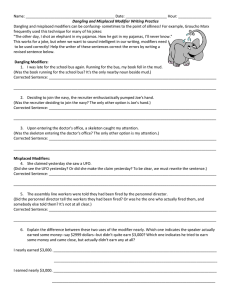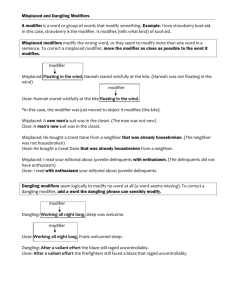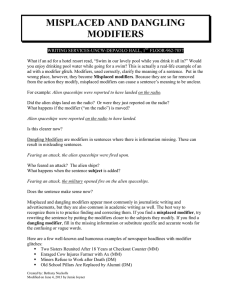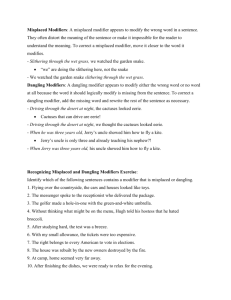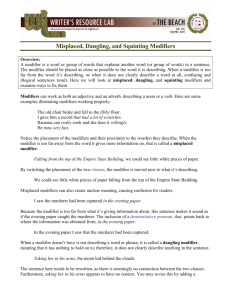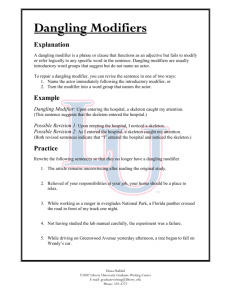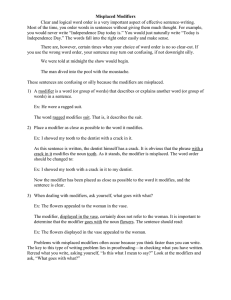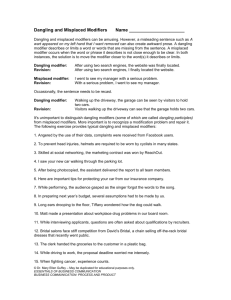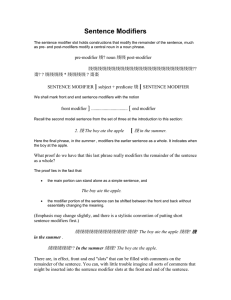The Portable Editor
advertisement
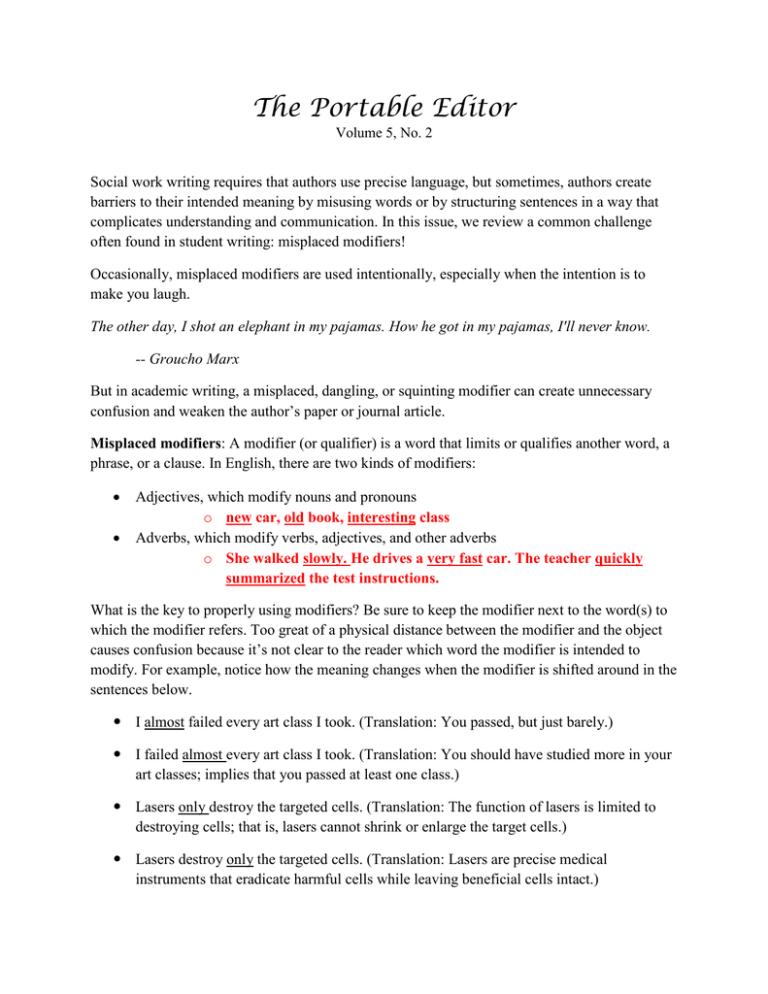
The Portable Editor Volume 5, No. 2 Social work writing requires that authors use precise language, but sometimes, authors create barriers to their intended meaning by misusing words or by structuring sentences in a way that complicates understanding and communication. In this issue, we review a common challenge often found in student writing: misplaced modifiers! Occasionally, misplaced modifiers are used intentionally, especially when the intention is to make you laugh. The other day, I shot an elephant in my pajamas. How he got in my pajamas, I'll never know. -- Groucho Marx But in academic writing, a misplaced, dangling, or squinting modifier can create unnecessary confusion and weaken the author’s paper or journal article. Misplaced modifiers: A modifier (or qualifier) is a word that limits or qualifies another word, a phrase, or a clause. In English, there are two kinds of modifiers: • • Adjectives, which modify nouns and pronouns o new car, old book, interesting class Adverbs, which modify verbs, adjectives, and other adverbs o She walked slowly. He drives a very fast car. The teacher quickly summarized the test instructions. What is the key to properly using modifiers? Be sure to keep the modifier next to the word(s) to which the modifier refers. Too great of a physical distance between the modifier and the object causes confusion because it’s not clear to the reader which word the modifier is intended to modify. For example, notice how the meaning changes when the modifier is shifted around in the sentences below. I almost failed every art class I took. (Translation: You passed, but just barely.) I failed almost every art class I took. (Translation: You should have studied more in your art classes; implies that you passed at least one class.) Lasers only destroy the targeted cells. (Translation: The function of lasers is limited to destroying cells; that is, lasers cannot shrink or enlarge the target cells.) Lasers destroy only the targeted cells. (Translation: Lasers are precise medical instruments that eradicate harmful cells while leaving beneficial cells intact.) We collected signatures only on the petition. (Translation: No address data were collected.) We collected only 25 signatures on the petition. (Translation: We needed 500, but we collected far fewer than the number required.) Dangling modifiers: A dangling modifier describes something that isn't even in your sentence. Usually you are implying the subject and taking for granted that your reader will know what you mean—not a good strategy. Here's an example: Hiking the trail, the birds chirped loudly. As written, the sentence’s message is that the birds are hiking the trail. This confusion arises because “the birds” are the only subjects present in the sentence. It’s doubtful that this message is what the writer intended. Rewriting the sentence to include the true subject clarifies the confusion: “Hiking the trail, Squiggly and Aardvark heard birds chirping loudly.” Squinting modifier: A modifier sandwiched between two possible targets. Children who laugh rarely are shy. ◦ Did the writer mean children who laugh infrequently are often shy, or that children who laugh often are typically not shy? It’s impossible for the reader to figure out what the writer intended to say. Location! Location! Location! It’s important for more than just real estate! Which one of these projects is unlikely to pay you as a research assistant? Our project received a grant for nearly $1 million dollars. Our project nearly received a grant for $1 million dollars. Nearly received means you don’t get paid! Need Writing Help??? Susan and Diane are here to assist! Contact the Writing Support Team: soswwritingsupport@gmail.com
